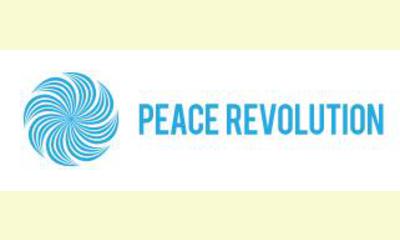|
|
Peace in Peace out: Sustainable peace through meditation
un articulo por Virginia Vilches Such
Peace Revolution is an organization which strives
to bring peace to the world by supporting
individuals to find inner peace and sharing that
peace with their families, friends and
communities, hence the slogan PIPO or Peace In,
Peace Out . So, in order to change the world, we
need to start from changing ourselves. The
philosophy underlying the program is that growing
inner peace is a good way to bring sustainable
peace to the world.

click on photo to enlarge
If you join the 42-days self-development program
you will be able to learn to meditate through
short videos in which monks from Thailand teach
you the meaning of meditation and the basic
meditation techniques. At the beginning the
concept of meditation is an abstract idea and a
bit difficult to grasp. However, with practice you
gain control of your mind and of your emotions,
you learn to be aware of yourself and connect with
your inner peace. Eventually, this helps you
develop happiness and compassion for others.
Once you experience it you understand the real
meaning and benefits of the program. It´s real self-
development because being aware of the person you
are gives you the power to decide on the person you
want to be.
One of the best parts is to share it with people
around you. PR encourages to peace rebels (this is
how they call those willing to bring sustainable
peace through meditation) to promote meditation
and culture of peace with their families and
friends. Normally, Peace Rebels organize
meditation sessions in small groups. This is a
great opportunity to speak about peace, teach
about meditation and share experiences.
Definitively, a great journey for those willing to
gain understanding of themselves and promote
sustainable peace. As E. Guevara said: Let the
world change you and you can change the world.
More info at www.peacerevol
ution.net.
(Click here for a Spanish version of this article)
|








|
DISCUSSION
Pregunta(s) relacionada(s) al artículo :
Does meditation contribute to nonviolence and a culture of peace?,
* * * * *
Comentario más reciente:
I agree with the preceding comment.
I find, indeed that there is more and more demand for meditation, as if it has become a wonderful cure for all our troubles. But I do not think that meditation is a remedy. I believe rather that it is a tool that can have completely different effects, according to its use and application in the real world.
To have an effect on the real world, it is necessary to act. But meditation is passive; it is a gymnastic that is motionless, spiritual, simply pertaining to the self. At best it it is a good self-discipline, a lever towards self-awareness. It is expressed as a monologue profoundly interiorized that remains at the level of the individual.
Doubtless, it can be an excellent tool for those who want to learn how to channel and control their emotions, to understand them and to know their limits. This is what I call "working on yourself."
What I am skeptical about is the idea, often expressed, that meditation IS "peace." No doubt it may be peace for the individual, but is it a guarantee of a durable peace in the sense of "culture of peace" as an alternative to the ancient culture of war in which we live? I doubt it. And it seems to me somewhat naive to think so. . ... continuación.

|
|









